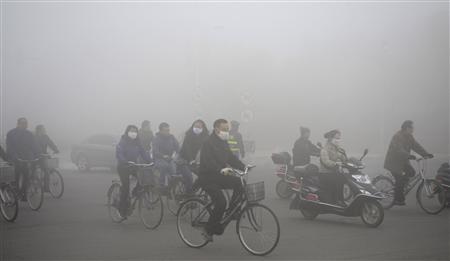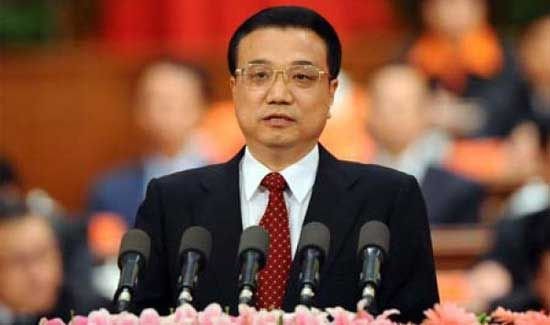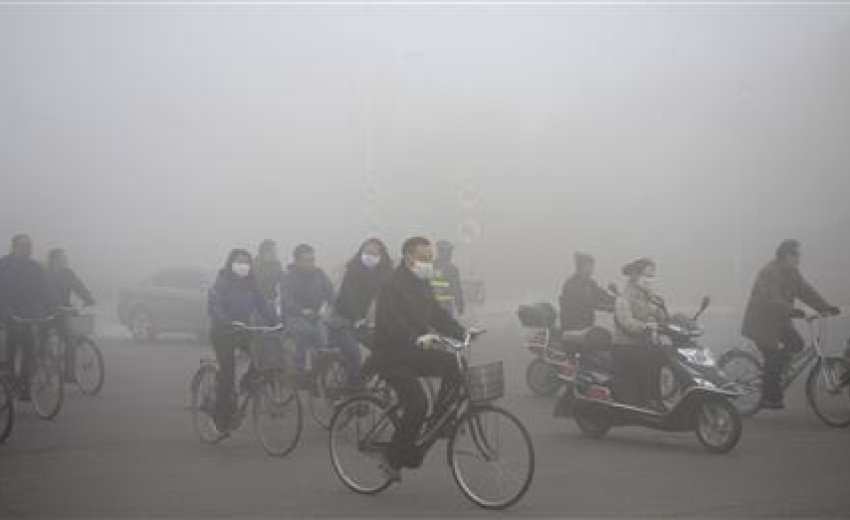 |
| People ride along a street on a smoggy day in Daqing, Heilongjiang province, October 21, 2013. CREDIT: REUTERS/STRINGER |
Pollution is ‘‘nature’s red-light warning against the model of inefficient and blind development,’’ Li said today in his work report at the start of this year’s National People’s Congress in Beijing. ‘‘Fostering a sound ecological environment is vital for people’s lives and the future of our nation.”
Li’s remarks, delivered in China’s equivalent of the U.S. president’s State of the Union address, reflect government recognition of public displeasure over pollution and its impact on people’s health. The weeks before the congress saw pollution stuck at unhealthy levels in much of northern China, prompting one government adviser to say smog had become “unbearable.”
“It is a prolonged battle,” Environment Minister Zhou Shengxian told reporters at the National People’s Congress meeting after Li spoke. “We need to be patient.”
A separate report released by China’s Finance Ministry said spending on energy conservation and environmental protection was 180.4 billion yuan ($29.44 billion), down 9.7 percent from last year. The ministry attributed the decline to an end to some subsidies meant to promote the use of energy-efficient products.
 |
| Li Keqiang, China's premier, delivers his report during the opening session of the 12th... Read More |
Act Vigorously
China will fight smog with the same determination it battled poverty and all society should “act more vigorously to protect the land our lives depend upon,” Li said.
Stressing pollution-control may be one reason why Li set a 2014 target of 7.5 percent growth in gross domestic product rather than a higher number, according to Shane Oliver, head of investment strategy at Sydney-based AMP Capital Investors.
“The slower growth target is consistent with more action on pollution,” Oliver said in an e-mail. Growth above 8 percent “would have signaled that pollution was becoming less of a focus,” he said.
A National Development and Reform Commission report, released today at the same time as Li’s speech, said China will raise discharge fees for major pollutants.
A U.S. Embassy monitor said the level of of PM2.5 in the Chinese capital today was 13, about half the World Health Organization’s recommended limit for 24-hour exposure.
To contact Bloomberg News staff for this story: Kevin Hamlin in Beijing at [email protected]; Sarah Chen in Beijing at [email protected]; Feifei Shen in Beijing at [email protected]
To contact the editor responsible for this story: Nicholas Wadhams at [email protected]
